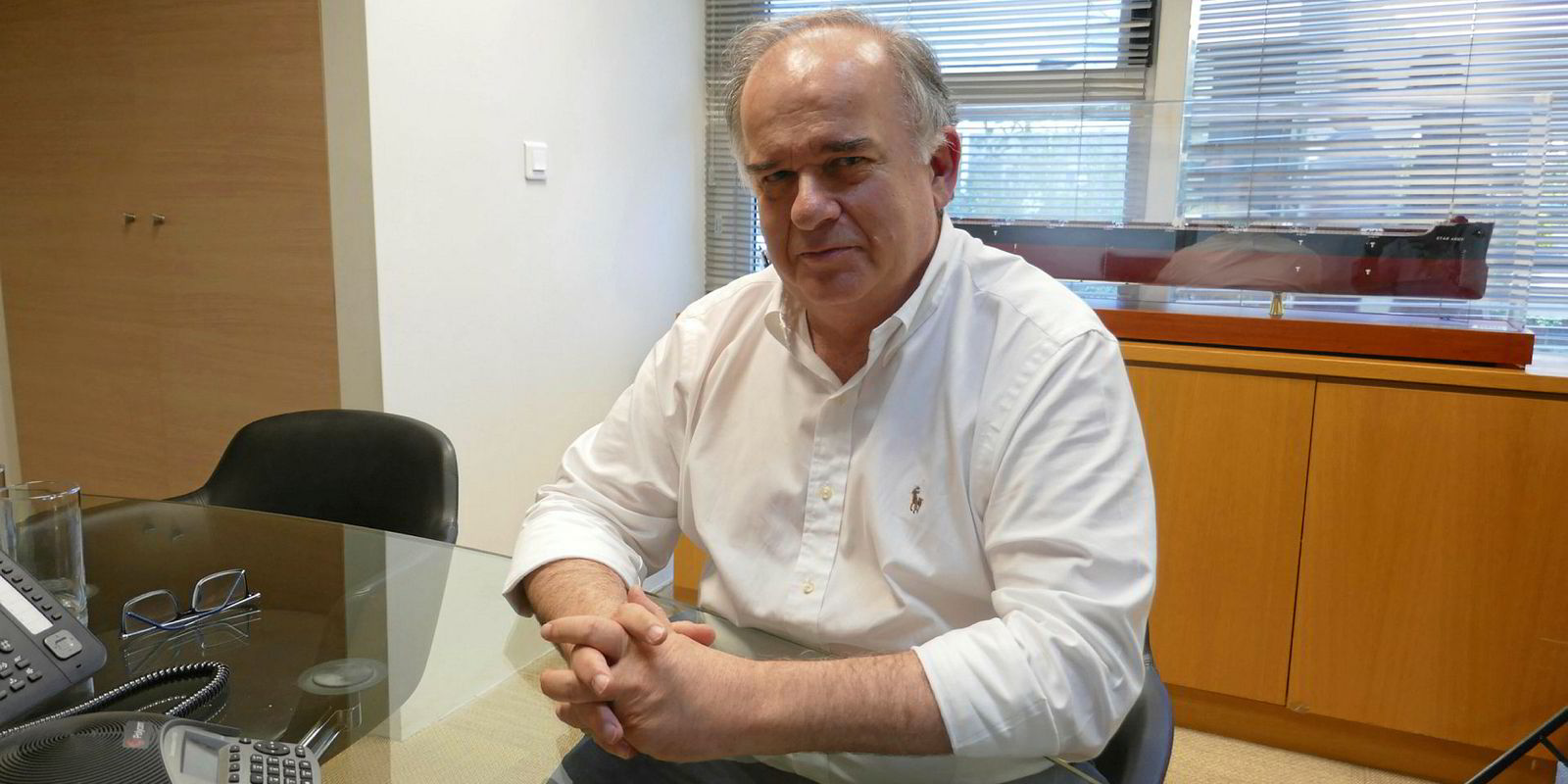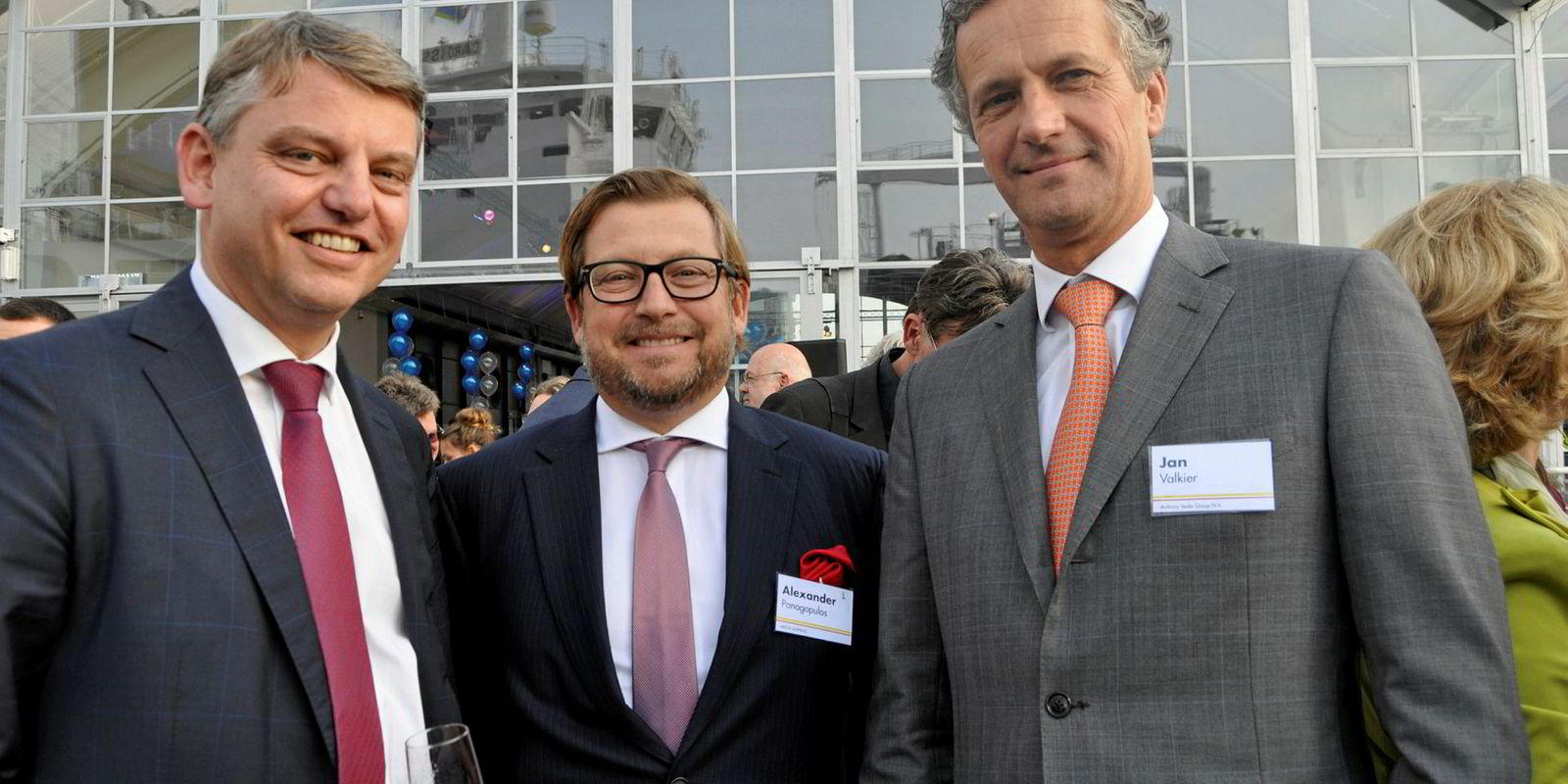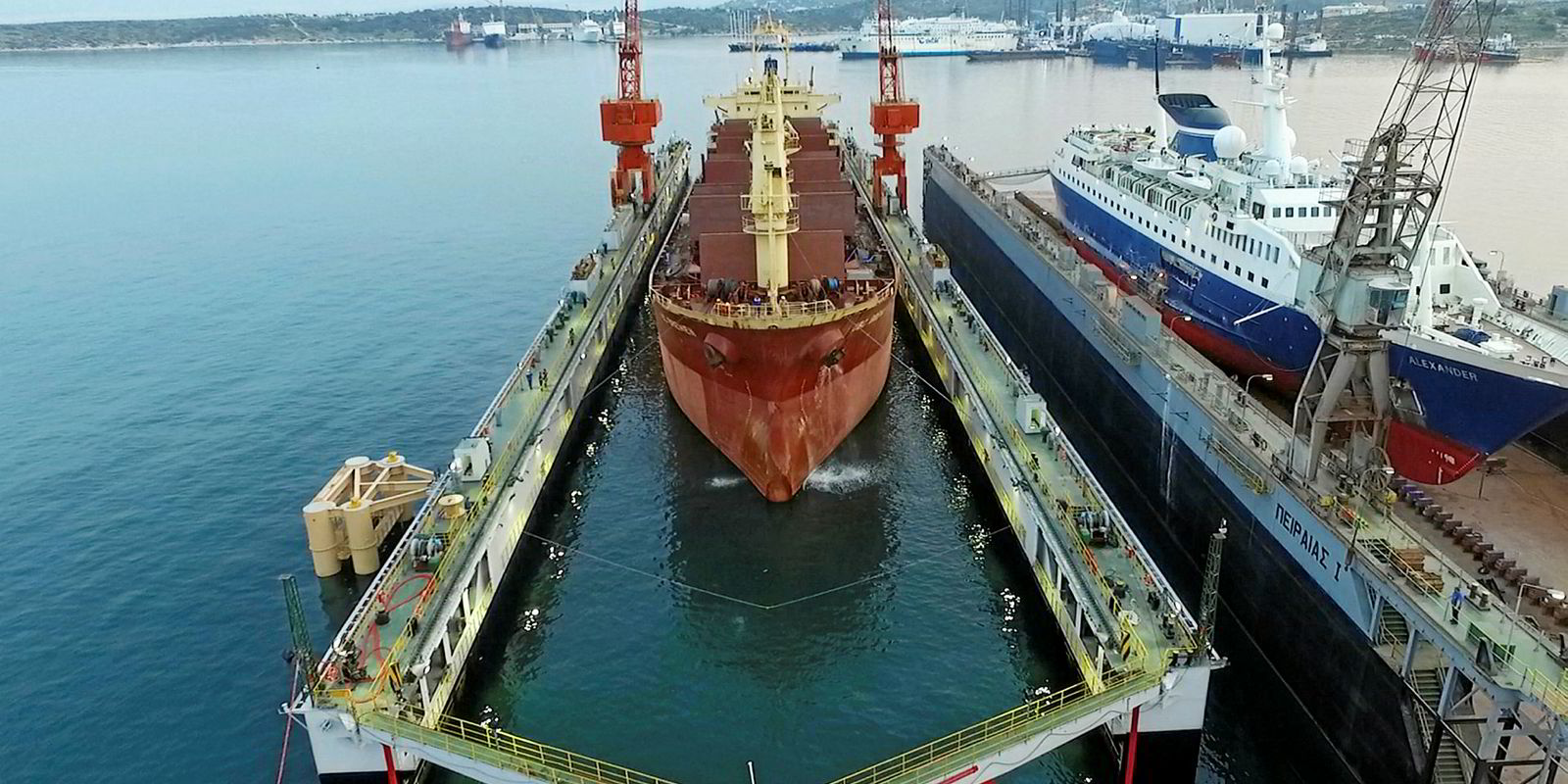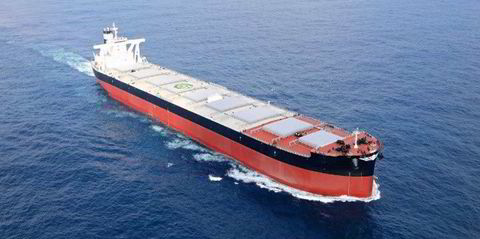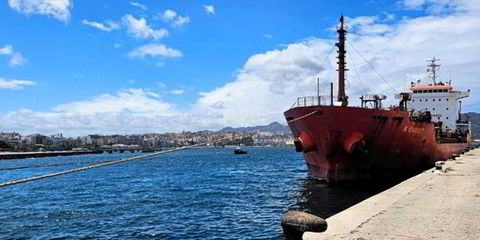To imagine the relation of Greek shipping to its home country, think of a gently floating Zeppelin.
The Zeppelin is an unmistakeable part of the scenery, yet it is only loosely connected to the ground. Its passengers enjoy a secluded, comfortable life onboard. Only rarely do they descend, and when they do, it is to cherry-pick from the best the world below has to offer.
There are times, however, when the Zeppelin threatens to drift away. Political earthquakes, regulatory headwinds and security concerns can blow it off course, make it go up in flames or even cause the earth to disappear from beneath its passengers’ feet.
Greece and its shipping industry were at just such a juncture recently. When the country’s debt crisis peaked in 2015, its very social fabric was stretched close to breaking point. A disorderly sovereign debt default raised the spectre of economic misery and class struggle-style upheaval. Shipowners were briefly afraid it might soon become dangerous for wealthy people to walk on the street, let alone to run a business.
As if that was not enough, the dry bulk market went through its worst crisis in memory in early 2016. At the end of that year, the European Union’s executive commission launched a probe against the Greek tonnage tax regime, threatening to remove the legal linchpin of the country’s shipping success since 1974.
Greek shipping goes into this year’s Posidonia in a definitely better mood. The debt crisis seems over, as the country’s government prepares to shake off creditor-imposed austerity. Enjoying the full backing of their country’s left-wing Prime Minister Alexis Tsipras, shipowners seem to have stalled the European Commission’s efforts to increase their tax burden.

The shipping market downturn of 2016 is over, at least in the dry bulk segment in which Greek shipowners are even more predominant than in other parts of the market.
Major shipowners that were fighting for survival a couple of years ago are alive and kicking now, buying up fleets or exploring new plans for initial public offerings.
Small Greek companies maintain their optimism, even in the crude tanker business, where freight rates have been at, or below, operating expenses in recent months.
Benefiting from rivals’ decline, Greeks have been making inroads in shipping sectors in which they have been playing second fiddle so far.

Global fleet statistics confirm the Greek shipping sector’s ascendancy. Greeks topped global shipowning rankings for yet another year in 2017, steadily increasing their lead and expanding their market share. They controlled 308.8 million dwt of commercial ship tonnage at the end of last year, according to figures by the United Nations Conference on Trade and Development (UNCTAD). The Greek-controlled tonnage has increased by 20% since 2014, growing twice as fast as the world’s entire merchant fleet over that period. As a result, Greeks’ share in global commercial fleet tonnage expanded for a third year in a row to 16.7% in 2017, up from 15.4% in 2014.
Greeks’ increasing weight in the shipping world is also reflected in the industry’s international representation. In a rather rare constellation, they are currently leading four of the world’s most important international shipping organisations: Nikolas Tsakos heads tanker lobby group Intertanko; John Platsidakis of the Angelicoussis Group is at the helm of dry bulk shipping association Intercargo; Panos Laskaridis has taken over the leadership of the European Community Shipowners’ Associations (ECSA); and Anastasios Papagiannopoulos of Athens shipping company Common Progress is the president of Bimco.

Given the Greeks’ conservative approach on environmental regulation issues, it is safe to assume the four men helped temper outlandishly high expectations about future carbon emission cuts. The Union of Greek Shipowners (UGS), which considers itself a bastion of realism in the industry, has lauded the 50% cut target adopted by the IMO. The IMO’s decision was a “balanced political compromise and one that could be workable for the shipping industry”, said the UGS, which celebrated its centenary two years ago.
Meanwhile, a new generation of Greek shipowners seems readier than previous ones to embrace radical solutions to achieve low-carbon shipping.
Greeks heading global shipowning rankings is nothing new. What is new, however, is their growing presence in tech-heavy maritime service sectors, previously dominated by Anglosaxons, Germans, Nordics or Asians.
An increasing number of innovative high-tech start-ups founded by talented professionals — from software engineers to hardware developers — are providing an ever-wider range of services to the local shipping scene. The concentrated mass of big shipowners they find in Athens and Piraeus often serves as a springboard to expand globally.

Local shipowners and managers often ignore that the people behind websites such as MarineTraffic.com are fellow Greeks.
Erma First, another Greek company, is one of a handful of firms worldwide to have secured US Coast Guard (USCG)-type approval for its product. A few months ago, it signed a fleet-wide deal with Wall Street-listed Safe Bulkers.
Piraeus-based Marichem Marigases is the world’s third-largest supplier of water treatment chemicals for vessels. It will soon become the second-biggest if a merger of its two biggest rivals succeeds later this year.
Marina Tzoutzouraki, the Greek partner of veteran Norwegian ship-finance veteran Dagfinn Lunde, hopes to revolutionise ship lending with the help of a new web-based platform.
The Greek financial crisis has played the part of midwife to many of these companies. Rampant unemployment, especially among the young, has pushed computer and engineering talent towards shipping — perhaps the only industry spared in the economic depression that swept over the country over the past 10 years. As a further side-effect of the crisis, employee wages dropped and cheap office space became available in downtown Athens and Piraeus.

Doing business out of Greece, however, is far from simple. It is no coincidence that at least some of the start-ups have chosen to register in other European jurisdictions such as the UK, Netherlands or Cyprus. Greek taxes are high, compared to European countries. Even worse, cash-strapped governments change tax rates all the time to plug budget holes.
“Making this business work is hard enough — I don’t need any tax uncertainty on top of that,” the founder of a company that registered abroad tells TradeWinds.
The Greek crisis has also indirectly helped some more traditional shipping service industries arrest their decline and hope for recovery.
The number of Greek seamen enlisting on vessels has been climbing to multi-year highs. Greece has been privatising its biggest ports to pay down public debt. Major international terminal operators such as Cosco and CMA CGM have bought the two biggest ones, pledging to revive the country’s dormant shiprepair industry and expand its containership operations.
Not every plan to turn Athens and Piraeus into full-blown maritime hubs will succeed. The government’s hopes to attract protection and indemnity clubs and insurance companies seeking a refuge from post-exit Britain look far-fetched.
Greek justice and bureaucracy are still too slow-moving and Kafkaesque to offer a home to such companies.
But Greece has nothing to lose by trying everything it can to develop its maritime cluster. It is time to tether that Zeppelin a little firmer to the ground.


